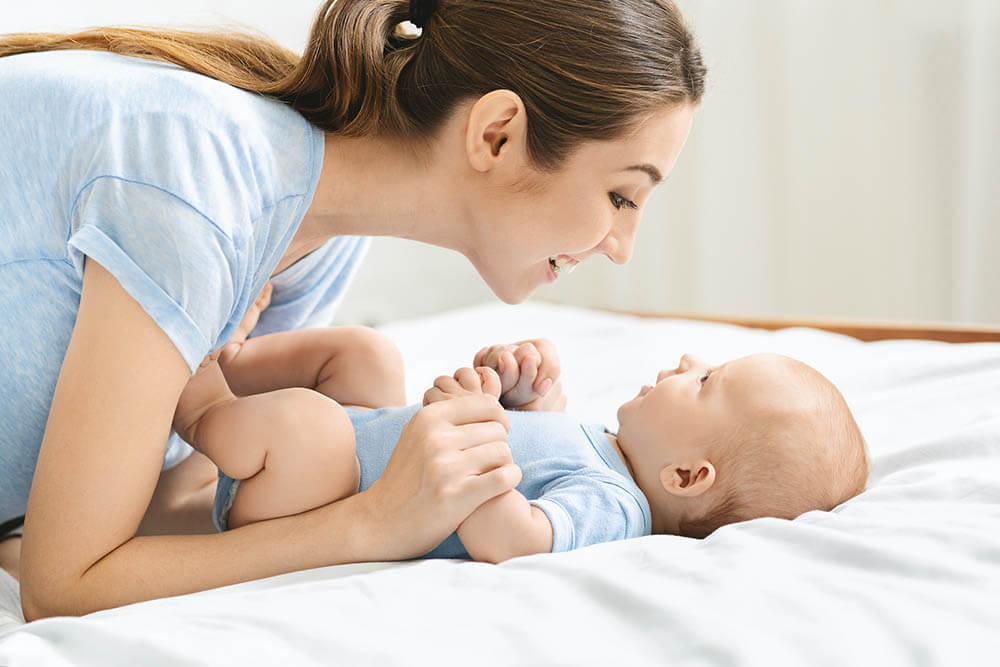 Source: bing.com
Source: bing.comAs a new parent or caregiver, you may have noticed that you naturally use a higher pitch and exaggerated facial expressions when speaking to your baby. This type of communication is commonly known as baby talk. But did you know that baby talk actually plays an important role in your child’s language development? In this article, we’ll dive into how baby talk can benefit your baby’s language development and provide tips on how to incorporate it into your daily routine.
Table of Contents
What is Baby Talk?
Baby talk, also known as infant-directed speech, is a way of speaking that is specifically targeted towards babies and young children. It involves using high-pitched tones, exaggerated intonation, and simplified grammar. Baby talk is different from the way we speak to adults, and it is believed to be a universal form of communication across different cultures and languages.
How Does Baby Talk Benefit Language Development?
Research has shown that baby talk can help babies learn the sounds and patterns of their native language. By using a higher pitch and exaggerated intonation, parents and caregivers can make it easier for babies to distinguish between different sounds and words. Baby talk also tends to be slower and more repetitive than adult speech, which can help babies process and understand language more effectively.
In addition to helping babies learn language, baby talk also plays an important role in the bonding between parents and babies. By using baby talk, parents and caregivers are able to establish a strong emotional connection with their baby, which can be beneficial for both the baby’s social and emotional development.
Tips for Using Baby Talk to Support Language Development
Here are some tips for incorporating baby talk into your daily routine:
- Use a higher pitch and exaggerated intonation when speaking to your baby
- Repeat key words or phrases to help your baby learn new vocabulary
- Use facial expressions and gestures to help your baby understand the meaning behind your words
- Speak slowly and clearly, allowing your baby time to process what you are saying
- Incorporate baby talk into everyday activities, such as bath time, diaper changes, or mealtimes
Remember, it’s important to use baby talk in moderation. While it can be helpful for language development, it’s also important for babies to hear and learn from adult speech. As your baby grows and develops, you can gradually start to incorporate more complex language into your conversations.
The Bottom Line
Baby talk may seem silly, but it’s actually an important tool for supporting your baby’s language development. By using a higher pitch, exaggerated intonation, and simplified grammar, parents and caregivers can help babies learn the sounds and patterns of their native language. Baby talk also plays an important role in the bonding between parents and babies, which can be beneficial for both the baby’s social and emotional development. So go ahead and have some fun with baby talk – your baby will thank you for it!
Frequently Asked Questions
Q: Is baby talk the same as “dumbing down” language for babies?
A: No, baby talk is not the same as “dumbing down” language for babies. While baby talk does involve using simplified grammar and vocabulary, it is still important to expose babies to complex language to help them develop their language skills.
Q: When should I start using baby talk with my baby?
A: You can start using baby talk with your baby as soon as they are born. In fact, research has shown that newborns prefer baby talk over adult speech!
Q: Is it okay to use baby talk all the time?
A: While baby talk can be helpful for language development, it’s also important for babies to hear and learn from adult speech. It’s best to use baby talk in moderation and gradually incorporate more complex language as your baby grows and develops.
Q: What if I feel silly using baby talk?
A: It’s normal to feel silly using baby talk at first, but remember that it’s an important tool for supporting your baby’s language development. And don’t worry – your baby won’t judge you for it!
Q: Can using baby talk negatively impact my baby’s language development?
A: No, using baby talk in moderation will not negatively impact your baby’s language development. In fact, research has shown that baby talk can be beneficial for language development when used appropriately.
